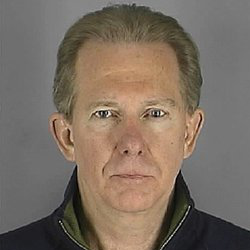
Additional Time Was Given Because Gerald Greenfield Tried to Collect Gambling Debts While Out on Bail
A 69-year old convicted illegal bookmaker from Minnesota has been ordered to pay back $250,000 to a dozen former clients in North Dakota, according to a story in the Crookston Times. The man, Gerald Greenfield, also was ordered to serve an additional four onths in prison. Currently, Greenfield is serving six years in prison for a separate conviction.
Gerald Greenfield was a resident of Bloomington, Minneosta while he ran his illegal bookmaking business. He is serving 50 months in prison for money-laundering, along with an 18-month sentence for “walking away from a federal prison camp” based in Duluth, Minnesota.
Lawyer Pleaded for Leniancy
At the proceedings this week, Greenfield’s lawyer James Henderson told U.S. District Judge Ralph Erickson that his client did not need additional time in prison–that such a sentence would serve no purpose.
Mr. Henderson told the judge in the case that additional time would serve no purpose. He said, “Is another 27 months going to do anything? It is going to teach this man any further lessons?. He’s not a hoodlum, he’s not a gangster. He has been a bookmaker.”
Millions of Dollars in Revenue
After Greenfield pleaded guilty in January 2015 to interstate transmittal of wagering information and conspiracy to commit money laundering, he was given an additional four months of jail time by Judge Erickson.
Prosecutors said that the North Dakota operation, which operated mainly in Fargo, generated millions of dollars in gambling action. This money was funneled through overseas accounts. Due to the large sums of money collected and the harm done to the compulsive gamblers who used his bookmaking services, the federal government had asked for an additional 27 months in prison for the bookie.
Needed to Learn Self-Control
Judge Erickson decided the bookmaker needed to learn self-control, so he gave him an additional 4 months on his original sentence. The judge pointed out that Mr. Greenfield had tried to collect on an old gambling debt during an earlier release from jail (and after he had been indicted).
That incident showed the judge that Gerald Greenfield showed little remorse and had not learned a lot from his brief arrest. The judge said, “It’s obvious the defendant has some impulse control problems.”
Nick Chase Called for 27 Months
In asking for additional prison time, Assistant U.S. Attorney Nick Chase characterized Gerald Greenfield as a bottom feeder and a social parasite. He pointed out Greenfield, who was known to gamblers by his nickname “Maverick”, had made millions of dollars illegally off the gamblers of North Dakota. Nick Chase told the judge, “The defendant felt he was never going to get caught.”
How Bookies Come to Be
Becoming an illegal bookmakers or “bookie” is the most common form of gambling-related criminal in local communities. The informal process of collecting bets makes it easy for a local operator to build a network of gamblers. In most cases, bookies do not back the bets. Instead, they collect money from the wagers, then place the bets through a third party. The bookmaker then collects a fee for the bet, called the juice, which often is between 10% and 20% of the wager.
Casinos and sportsbooks which accept the bookie’s bet also charge juice, so the bookmaker has to charge a steeper price than the legitimate sportsbooks. In the age of the Internet, most bookies use online sportsbooks to launder the money. In doing so, they leave a trail which can be tracked by investigators when they start to audit the books.
Investigating an Illegal Bookmaker
The difficult part of investigating an illegal sports betting ring is getting started in the first place. In most cases, illegal bookmakers are undone when one of their disgruntled former gamblers decides to inform law enforcement of the bookmaker’s criminal conduct. In that way, every new client could become an informant.
One reason gamblers are not prosecuted is incentive to come forward and talk about the crimes. Also, sports betters are making bad bets when they pay 15% to 20% of wager in juice. It’s akin to gambling with a 15% to 20% house edge. The sports gambler in an illegal ring tends to be punished enough, because they lose large amounts of cash.
None of the gamblers in Maverick’s illegal bookmaking syndicate were charged with a crime.
